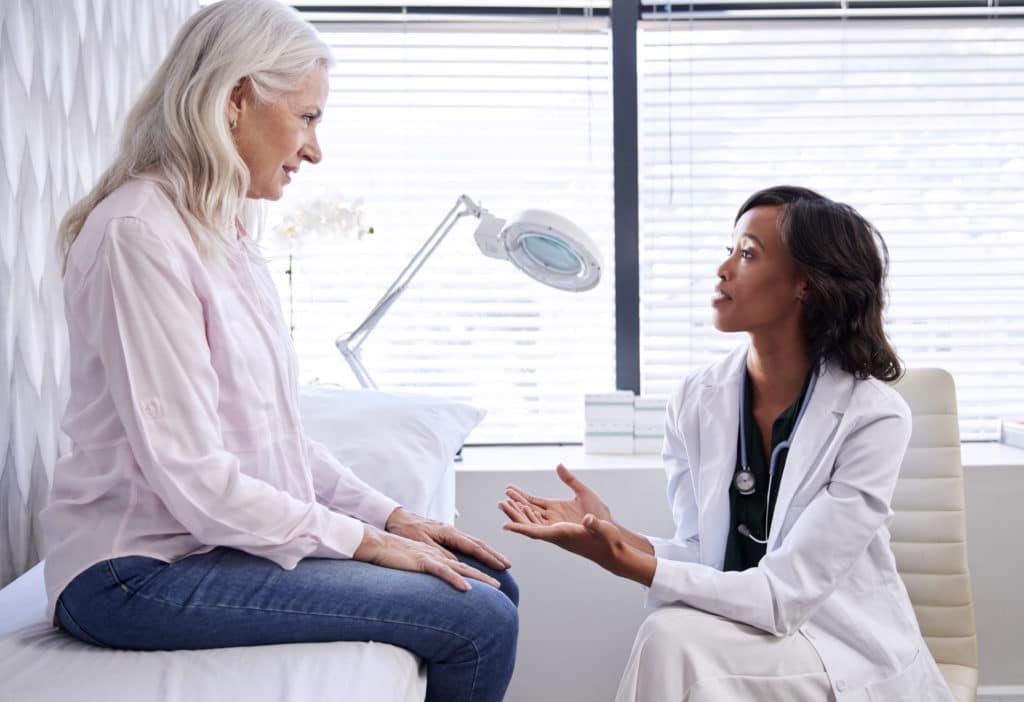New Treatments Needed For Women With Early Stage Breast Cancer Who Suffer From AIMSS
A new survey has concluded that effective treatments are needed to help women with early stage breast cancer who suffer from Aromatase Inhibitor Induced Musculoskeletal Syndrome (AIMSS), continue their cancer treatment.
The survey was conducted by researchers of the Australia and New Zealand Breast Cancer Trials Group (ANZBCTG), in collaboration with the Breast Cancer Network Australia (BCNA), and the results were announced at the annual meeting of the San Antonio Breast Cancer Symposium in Texas, USA. The survey involved members of BCNA’s Review and Survey Group.
Approximately two thirds of women with early stage breast cancers have hormone receptor positive breast cancer and most will benefit from at least five years of adjuvant (post-operative) endocrine treatment with either an aromatase inhibitor (AI) or tamoxifen. AI’s are a commonly used class of breast cancer medication, and include letrozole, anastrozole and exemestane.
Studies in the last decade have indicated that for post-menopausal women, AI’s are superior to tamoxifen in terms of disease free survival and in some instances overall survival. As a result, the use of AI’s has been increasing since their introduction in 2004 and in 2008 overtook that of tamoxifen.
AIMSS is experienced by approximately half of women taking an AI and the symptoms include arthritis, arthralgia, myalgia, musculoskeletal pain, carpal tunnel syndrome, joint stiffness and parasthesia. Many women who suffer from AIMSS stop their breast cancer treatment due to these side effects.
Previously, there has been no specific data on AIMSS in Australian early breast cancer patients, and no data on which treatments are used by Australian women and how effective those treatments are.
ANZBCTG researchers surveyed 370 women with a history of early stage breast cancer with current or past experience taking an AI. The survey found that: ANZBCTG researcher and study lead author, Dr Janine Lombard, says the survey results show that more research is needed into effective treatments for AIMSS to help women continue their breast cancer treatment.
“This survey confirms that AIMSS is a significant issue for Australian women with early breast cancer and an important reason why some women stop their cancer treatment,” Dr Lombard said.
“Women use a number of treatments to manage AIMSS, including doctor-prescribed treatments, over the counter or complementary interventions and alternative therapies, but their efficacy appears limited.
“We now need further research into improving the treatments available to women who suffer from AIMSS, to improve their quality of life and to help women remain on their breast cancer treatment.”
ANZBCTG researchers Associate Professor Jacquie Chirgwin, Dr Nicholas Zdenkowski and Professor John Forbes AM developed this study and are co-authors on the survey poster presented at San Antonio. Dr Linda Reaby, who is a member of the ANZBCTG’s Consumer Advisory Panel, is also a co-author.
The ANZBCTG is Australia’s national organisation dedicated entirely to breast cancer research. It conducts a national clinical trials research program for the treatment, prevention and cure of breast cancer. The research program involves multicentre clinical trials and collaboration with 87 institutions and over 700 researchers throughout Australia and New Zealand and many more globally. More than 14,000 women have participated in ANZBCTG breast cancer clinical trials. The fundraising department of the ANZBCTG is the Breast Cancer Institute of Australia (BCIA).
Media contact: Anna Fitzgerald, ANZBCTG Communications Manager
- 81% of respondents experienced AIMSS after they commenced AI treatment;
- 27% of respondents had discontinued AI’s for any reason;
- 18% of respondents discontinued their breast cancer treatment because of AIMSS; and
- 34% of respondents considered stopping their breast cancer treatment because of AIMSS.
Support Us
Help us to change lives through breast cancer clinical trials research

